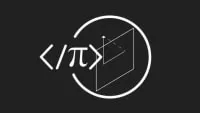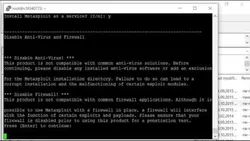
Python for linear algebra (for absolute beginners) 
This course introduces absolute beginners to the fundamentals of linear algebra using Python. Learn how to use Python to understand vectors and matrices and explore the fascinating world of linear algebra. ▼
ADVERTISEMENT
Course Feature
![]() Cost:
Cost:
Free
![]() Provider:
Provider:
Udemy
![]() Certificate:
Certificate:
No Information
![]() Language:
Language:
English
Course Overview
❗The content presented here is sourced directly from Udemy platform. For comprehensive course details, including enrollment information, simply click on the 'Go to class' link on our website.
Updated in [March 06th, 2023]
This course provides an introduction to Python for absolute beginners. No prior experience is necessary. Participants will learn how to use Python online without any installation. The basics of linear algebra will be covered, as well as how to use Python to learn mathematics. By the end of the course, participants will have a better understanding of Python and linear algebra, and will be able to use Python to solve mathematical problems.
[Applications]
After completing this course, learners can apply their newfound knowledge of Python and linear algebra to a variety of tasks. They can use Python to solve linear equations, create graphs, and analyze data. They can also use Python to create visualizations of linear algebra concepts, such as vectors and matrices. Additionally, learners can use Python to create programs that can be used to automate tasks related to linear algebra. Finally, learners can use Python to create interactive applications that can be used to teach linear algebra concepts to others.
[Career Paths]
1. Data Scientist: Data Scientists use Python to analyze large datasets and uncover patterns and trends. They use this data to develop predictive models and create insights that can be used to inform business decisions. Data Scientists are in high demand and the field is expected to continue to grow as more organizations rely on data-driven decision making.
2. Machine Learning Engineer: Machine Learning Engineers use Python to develop algorithms that can learn from data and make predictions. They are responsible for designing, building, and deploying machine learning models that can be used to automate tasks and improve decision making. The demand for Machine Learning Engineers is expected to continue to grow as more organizations adopt AI and automation technologies.
3. Artificial Intelligence Engineer: Artificial Intelligence Engineers use Python to develop algorithms that can learn from data and make decisions. They are responsible for designing, building, and deploying AI systems that can be used to automate tasks and improve decision making. The demand for Artificial Intelligence Engineers is expected to continue to grow as more organizations adopt AI and automation technologies.
4. Data Analyst: Data Analysts use Python to analyze large datasets and uncover patterns and trends. They use this data to develop insights that can be used to inform business decisions. Data Analysts are in high demand and the field is expected to continue to grow as more organizations rely on data-driven decision making.
[Education Paths]
1. Bachelor of Science in Mathematics: This degree path provides a comprehensive understanding of mathematics, including linear algebra. Students will learn the fundamentals of linear algebra, including vector spaces, matrices, and linear transformations. Additionally, they will gain an understanding of the applications of linear algebra in various fields, such as engineering, computer science, and economics. As technology continues to advance, the demand for mathematicians with a strong understanding of linear algebra is expected to increase.
2. Bachelor of Science in Computer Science: This degree path provides a comprehensive understanding of computer science, including programming languages such as Python. Students will learn the fundamentals of programming, including data structures, algorithms, and software engineering. Additionally, they will gain an understanding of the applications of computer science in various fields, such as artificial intelligence, machine learning, and robotics. As technology continues to advance, the demand for computer scientists with a strong understanding of programming languages such as Python is expected to increase.
3. Master of Science in Data Science: This degree path provides a comprehensive understanding of data science, including the use of Python for data analysis. Students will learn the fundamentals of data science, including data mining, machine learning, and predictive analytics. Additionally, they will gain an understanding of the applications of data science in various fields, such as healthcare, finance, and marketing. As data continues to become more important in decision-making, the demand for data scientists with a strong understanding of Python is expected to increase.
4. Master of Science in Artificial Intelligence: This degree path provides a comprehensive understanding of artificial intelligence, including the use of Python for AI development. Students will learn the fundamentals of AI, including natural language processing, computer vision, and robotics. Additionally, they will gain an understanding of the applications of AI in various fields, such as healthcare, finance, and marketing. As AI continues to become more prevalent in everyday life, the demand for AI experts with a strong understanding of Python is expected to increase.
Course Syllabus
Getting started with Python
Variables and arithmetic
The numpy module
The matplotlib module
Pros & Cons

Clear and precise explanations.

Gradual progression from zero.

Easy-to-understand fashion.

Too much math for beginners.

Too much to grasp.

Dependent on existing routines.
Course Provider

Provider Udemy's Stats at AZClass
Discussion and Reviews
0.0 (Based on 0 reviews)
Explore Similar Online Courses

Computer Networks

Ethical Hacking and Penetration Testing (Kali Linux)

Python for Informatics: Exploring Information

Social Network Analysis

Introduction to Systematic Review and Meta-Analysis

The Analytics Edge

DCO042 - Python For Informatics

Causal Diagrams: Draw Your Assumptions Before Your Conclusions

Whole genome sequencing of bacterial genomes - tools and applications

Linear Algebra: Help & Tutorials

Eigenvectors and Eigenvalues


Start your review of Python for linear algebra (for absolute beginners)